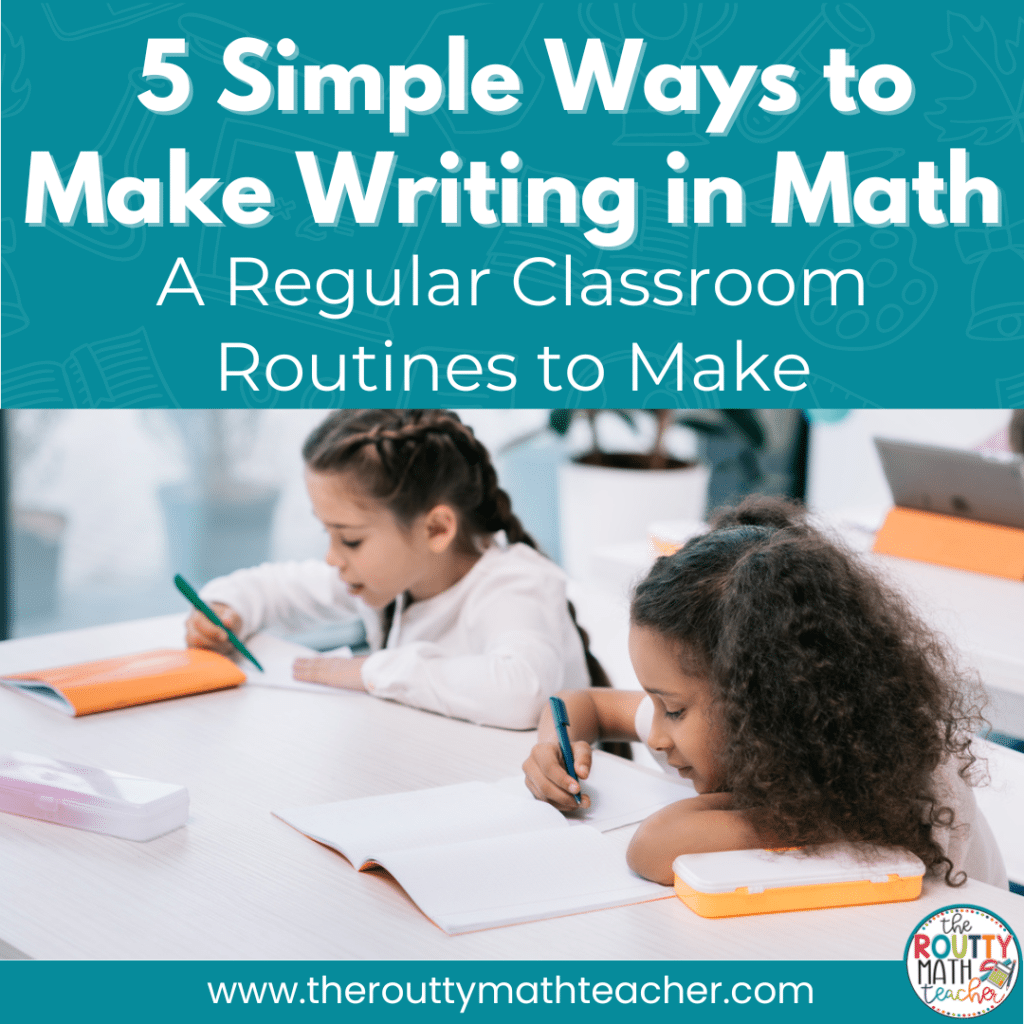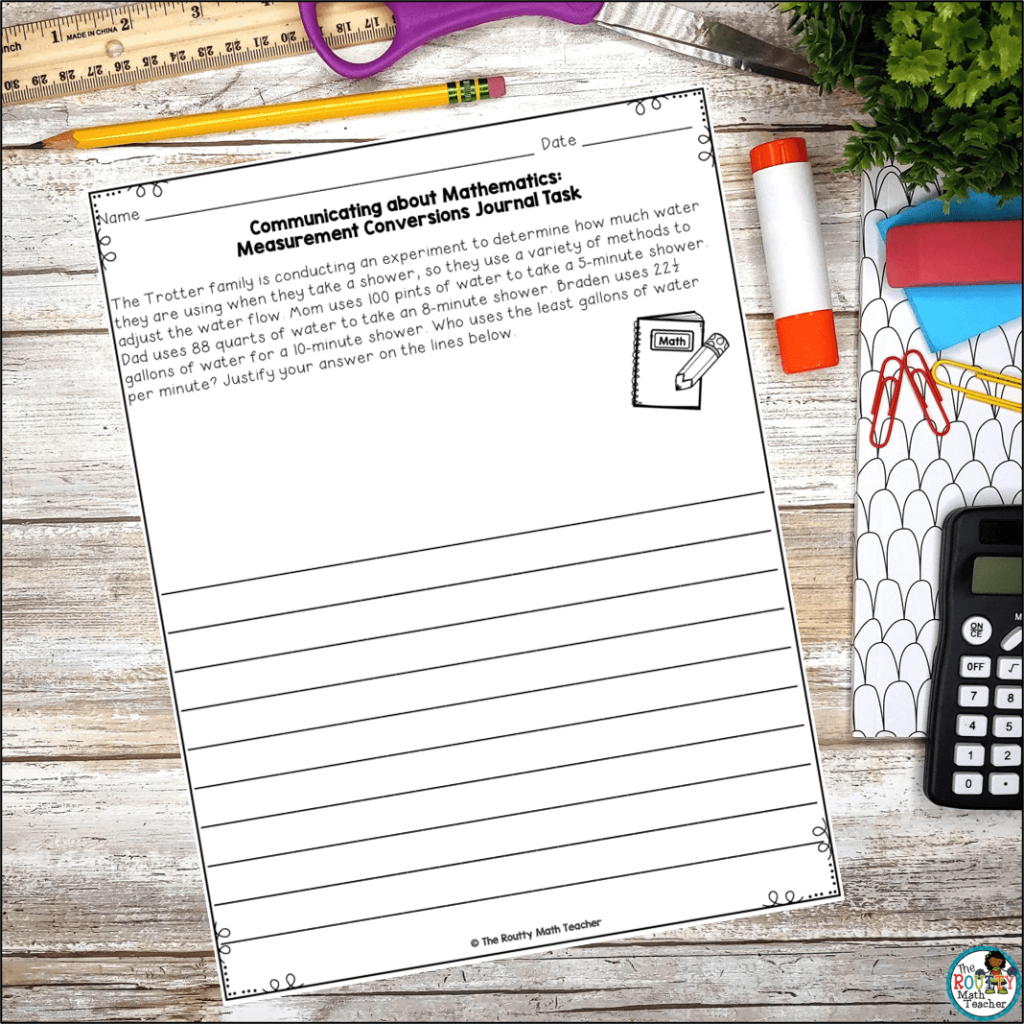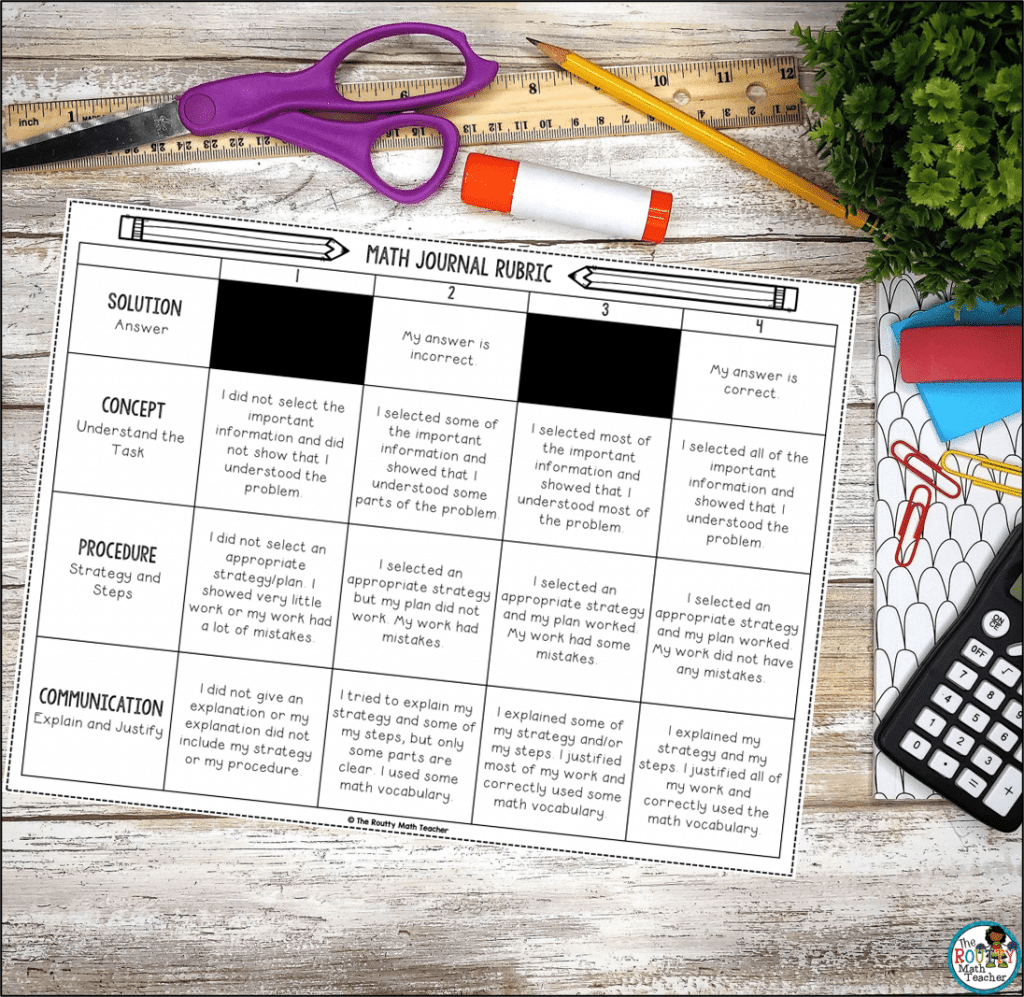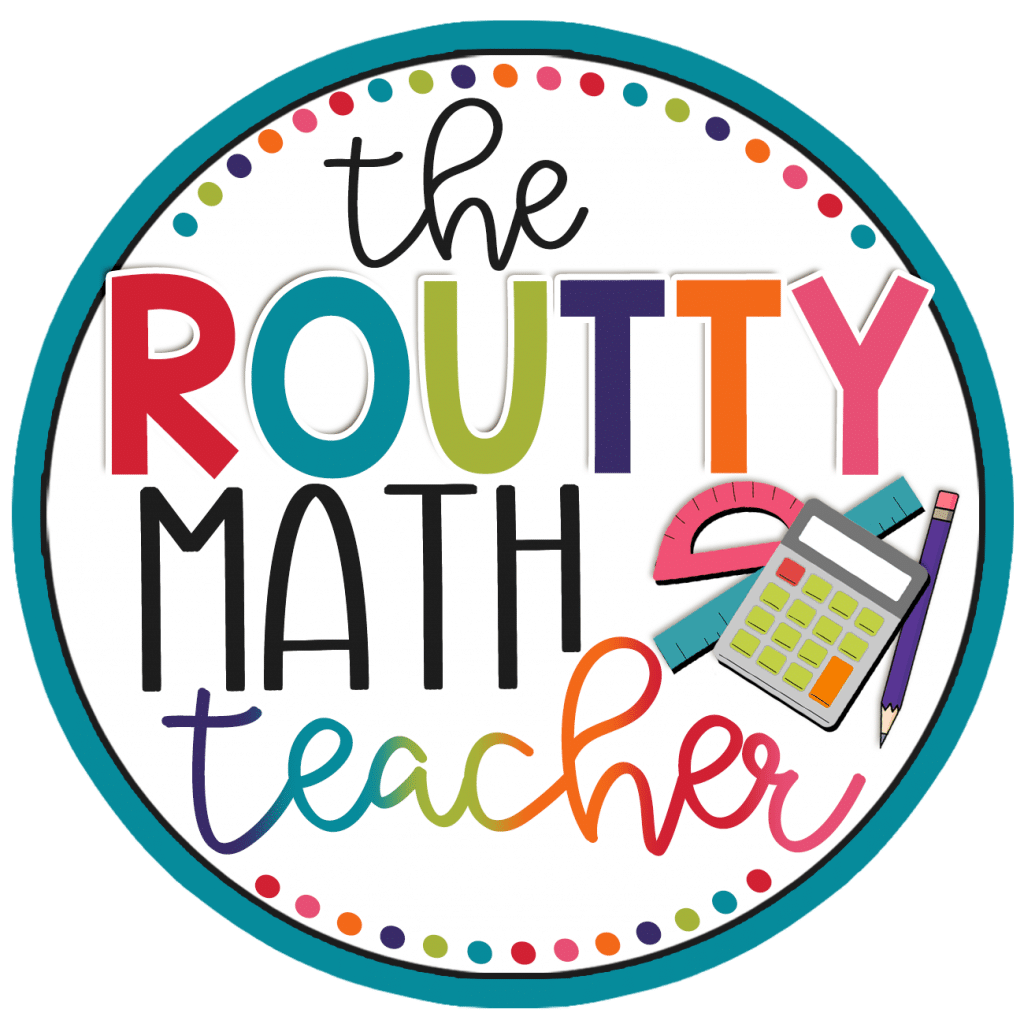Math Journals: Strategies that Work

How much can students write about math? Simply stated– a lot! In this post, I share 5 quick wins for getting started with math journals in the classroom.
Counselor: “The hardest writing samples to collect are in mathematics. How much can you really write about math?”
Me: 😲 (speechless)
I was flabbergasted! But, I understood her perspective; it’s one I have heard many times before.
Students often see math as a subject of numbers, not a subject of rich communication and discussion. They simply have not had the opportunity to see math connected to the work they do in language arts.
Why is it so hard for students to produce writing samples of substance when they write in math? One word– ACCESS!
Most students have not been exposed to consistent opportunities to write in mathematics.
Implementing math journaling, however, is one way to emphasize the connection between writing in math and writing in language arts and help students develop the tools necessary to become powerful thinkers and communicators of mathematics.
Admittedly, getting started is the most challenging aspect of implementing math journals. With this in mind, I want to share five strategies to make math journals a success in your classroom.
Five Strategies For Using Math Journals
1. Start with Something Simple
Begin with a task where students write about how they feel about math. At the beginning of the school year, I like to read The Math Curse by Jon Scieszka. Then, I ask students to write about how they feel about math as the first entry in their math journals. This task helps students get familiar with writing in math and the expectations for math journals.
Here are a few examples of other math journal prompts to get students thinking about math at the beginning of the school year.
- Is math your favorite subject? Why or why not?
- What do you like most about math? What do you like the least about math?
- Describe a time when you used math outside of school.
- What is the hardest thing to understand about math?
- What’s something you are excited to learn about in math?

2. Assign “Justify Your Thinking” Tasks
The best math journal tasks allow students to showcase their thinking and progress toward mastery of a skill. I recommend adding “justify your thinking” to the journal task to increase the level of communication and rigor. See an example of a math journal task above.
In addition, the best math journal tasks:
- accurately assess a specific skill or standard.
- go beyond basic facts or simple procedures.
- require students to understand the problem to complete the task.
- encourage students to communicate using visual pictures or models.
- make connections to other content and skills
- use math terms and vocabulary
3. Share Examples of Quality Work
The first few journal tasks will typically have correct solutions but will not have the most effective communication, which takes the longest to develop. To help students gain a better understanding of quality work, read through the responses and choose a few to “critique” anonymously in front of the class. You may even want to ask for volunteers. It may seem scary, but I’ve actually had the whole class volunteer to have their work critiqued because they found the feedback to be so helpful.

4. Use a Math Journal Rubric to Evaluate Student Work
Deciding how to grade math journals can be a challenge; however, using a rubric provides students with a clear understanding of the expectations. It also helps students understand how to improve their work. The image above shows the rubric I use when I evaluate student work.
5. Make Journaling a Regular Activity
I can’t emphasize this last point enough! It’s important to include a journaling experience during each unit. I typically like to assign a task at the end of each learning cycle or unit of study. With regular use, student responses will become much more detailed and give a more complex view of where each student is in the learning process.
Why Write In Math?
Over the years, writing about math and communicating mathematically gave me the most in-depth look at what my students knew and understood about mathematics. Even though it takes time for students to understand the tasks and expectations for writing in their math journals, these responses became more valuable than any traditional test or quiz ever could because the written responses gave me a glimpse inside the students’ thinking.
So, to answer the question, “How much can students write about math?” Simply stated– a lot.
While initial responses may be weak and lack a depth of understanding, with time and opportunities to understand how to expand their ideas, students who start with a three-sentence response can expand their thoughts to a whole page. Imagine what we could learn about a student’s thinking from that!
Ready To Get Started?
Grab a copy of my “Let’s Write! Strategies to Integrate Writing Skills with Math” eBook which includes some of my formative math assessment tools using the form below.
Sound Off!
What strategies do you use to get students writing in math? Tell us about it in the comments section below.





4 Responses
HI! I am a University student at NSU in Broken Arrow, OK. I have an assignment to follow a blog for the semester and I came across your blog on a Google search and I enjoyed reading your latest article on math journaling! I think it is so important to integrate literature with mathematics and I am looking forward to following your blog this semester!
Allison
Hi Allison!
I’m so glad to hear you find the website helpful! Math journaling is one of my favorite ways to assess my students. Writing in math provides such a detailed glimpse into student understanding. Best wishes to you with your studies!
Shametria
Hello,
I am currently studying to be an elementary education major at Northeastern State University, Oklahoma. As such, one of my professors has recommended that I follow a math or science blog this semester. After searching through the internet a bit, I was fortunate enough to find your blog. You have so many wonderful ideas that will provide a great deal of inspiration for me this semester. Thank you very much for making this information public.
Sincerely,
Noah Foster
Hi Noah!
I’m so glad to hear you find the website helpful! Best wishes to you with your studies!
Shametria